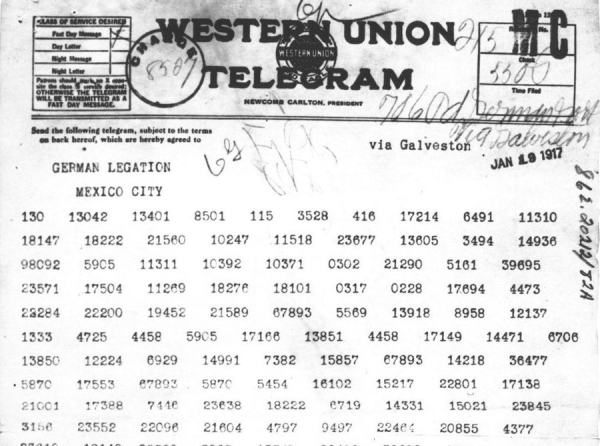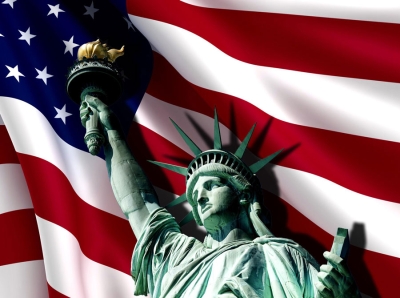The telegram that brought America into the Great War

When the Great War broke out in Europe in August 1914, the United States had no intention of joining. Nevertheless, the States, due to a whole set of political and economic reasons, became a kind of “rear base” for the Entente, producing weapons for it and lending money. As for public opinion, it was divided between those who sympathized with the Allies and those who sympathized with the Central Powers. The latter included mainly those who had German or Irish roots. Since 1915, there has been talk about whether the United States should directly enter the war on the side of the Entente. The fact is that Germany began “unrestricted submarine warfare” - all ships, even neutral ones, that found themselves off the coast of Great Britain were subject to merciless sinking. Thus, the Germans planned to starve the British and force them to make peace. Naturally, “unrestricted submarine warfare” hit American commercial interests, not to mention the death of American citizens. The most striking example of this kind was the sinking of the Lusitania liner in May 1915. After a loud scandal, the Germans, under the threat of the United States entering the war, temporarily suspended the “underwater chaos.” However, the further it went, the clearer it became that Germany was doomed in this “war of attrition.” In a desperate attempt to starve the British out faster than the Germans themselves, the Germans resumed “unrestricted submarine warfare” on February 1, 1917. In response, the United States severed diplomatic relations with Germany.
Realizing that things were heading towards war, the Germans began to think through plans in advance to “distract” the Americans from the European theater of operations. In the depths of the Kaiser's Foreign Office, an "ingenious" plan was hatched to induce Mexico to join the Central Powers. Back in January, Foreign Minister Arthur Zimmermann sent a telegram to the German ambassador in Mexico City asking him to make an offer to the Mexican government. If the United States entered the war and Mexico joined the Central Powers, Germany would supply the Mexicans with enough money and weapons to recapture the territories lost in the Mexican-American War of 1846–1848. – Texas, New Mexico, Arizona. Needless to say, the plan was completely adventurous. A revolution and civil war were raging in Mexico right at this time. The Americans regularly entered Mexican territory and occupied entire cities. How supplies across the Atlantic from Germany to Mexico would be organized is also unclear. In general, the government in Mexico City, having received the German offer, wisely refused it. But what was most unpleasant for the Germans was that the telegram was intercepted and deciphered by the British. Throughout February, British departments argued among themselves whether it was worth showing it to the Americans. After all, this threatened to give away the fact that the British knew and could read the German code. Moreover, the Zimmermann telegram was originally sent in a roundabout way via an American diplomatic cable to the German ambassador in Washington. It turned out that the Germans were abusing their diplomatic status, and the British were brazenly hacking into American networks. In the end, the British decided that the US entry into the war was worth the risks, and showed the telegram to the Americans, inventing a legend that they had actually intercepted it in Mexico City. Angry Americans published the cable in early March. Of course, the public had doubts about whether it was a fake. But all doubts were dispelled... by Zimmerman himself. The minister honestly stated that yes, the telegram was genuine. America should think several times about whether it wants to enter the war under the threat of the opening of a “second” Mexican front. The public threat had exactly the opposite effect. A significant part of the political elites and the public in the United States were convinced that Germany did not understand “in an amicable way”, and all that remained was to fight with it. On April 6, 1917, Congress declared war on Germany by a majority vote.
Source: Telegram channel “Steel Helmet”



